- Home
- Adam Croft
The Thirteenth Room (Kempston Hardwick Mysteries Book 4) Page 13
The Thirteenth Room (Kempston Hardwick Mysteries Book 4) Read online
Page 13
Warner ruffled through a stack of papers, checking something. ‘But Elliot Carr died about half an hour after that.’
‘Indeed. So he hadn’t even heard about Elliot Carr’s death when he decided to leave, let alone be affected by it, because Elliot Carr was still alive at that point.’
‘So why did he leave?’ Warner asked.
‘A disagreement with another member of staff, he says. He’d wanted to go for a while and the argument pushed him over the edge.’
‘So why lie? That’s a perfectly reasonable explanation in itself. Why throw the suicide of Elliot Carr into the mix? If he’d told you he wasn’t even at the bloody hotel when Elliot Carr died, that’s the story over. He’s not a witness nor a suspect. So why did he lie?’
‘That’s what I want to know,’ Hardwick said. ‘And I can see that you do, too.’
Warner exhaled deeply. ‘It does seem odd. Listen, I agree that we need to look more closely at this. Perhaps. This Owen Bartlett bloke is hiding something, I agree, but that’s not to say that it’s linked with any sort of crime whatsoever. And definitely not bloody murder, before you say anything. See what you can find out, but if you dare suggest murder again, I’ll make sure you’re barred from ever entering the Manor Hotel again, is that clear?’
Hardwick let the awkwardness pass before speaking again. ‘The toxicology reports on Elliot Carr and Kimberly Gray. Did they have anything other than alcohol in their systems?’
Warner sighed. ‘If it’ll shut you up, yes. Kimberly Gray had a half-digested cheeseburger and chips and Elliot Carr had a bag of pork scratchings. Happy?’
‘I meant had they taken any drugs, or...'
‘Or what?’ Warner replied. ‘Had they been poisoned? Simple answer is no. Absolutely no signs whatsoever.’
‘I see,’ Hardwick said. After a couple of moments of silence, he looked up and met Warner’s eye. ‘You know, Detective Inspector, whatever happened in the past in your life, you can’t let it cloud your judgement.’
‘I don’t think I’m the one having my judgement clouded, Hardwick,’ Warner replied.
‘What happened with your mother was, no doubt, a terrible tragedy but you won’t be able to find the answers you need in a completely unrelated case.’
Warner sat, stunned. Before he could reply, he was interrupted by the phone ringing on his coffee table. As he picked it up and answered it, Hardwick could see his face changing.
‘Right. I see. The same one? Mmmhmmm. Right. Okay, I’ll be right down.’ Warner put the phone down and let out a huge sigh as he closed his eyes. ‘Well, how’s that for timing?’ he said, looking at Hardwick. ‘There’s been another suicide at the Manor Hotel. And before you ask, yes: room thirteen, hanging, dressing gown cord. This pattern is starting to look a little too familiar for my liking.’
42
The scene at the Manor Hotel was very different when Hardwick and Warner arrived that evening. They’d had to meet Ellis at the end of the driveway, as the area around the hotel had been cordoned off by police tape. It was now clear to Hardwick that the local constabulary were treating the supposed suicides for what they were.
Warner had driven Hardwick to South Heath in complete silence. Warner himself had nothing to say as the constable on the phone said he’d give him all of the relevant information at the scene. Hardwick didn’t push Warner for conversation and instead preferred to sit in silence, hoping the Detective Inspector would be stewing on his reluctance to have accepted Hardwick’s theory of foul play earlier.
When the trio arrived at the front door of the Manor Hotel, Warner immediately spoke to a uniformed officer standing in reception.
‘Who is it?’ Warner asked.
‘Woman called Rosie Blackburn. At least that’s the name she signed in under, anyway. There’s an officer in her hotel room going through her belongings. Should be able to confirm ID from that.’
‘Right. And who found the body?’
‘The receptionist, sir. A Mandy Slater. She’s through in the lounge. A bit shaken, as you can imagine.’
Hardwick, Flint and Warner made their way through to the lounge amidst the murmuring and crackling of police radios and found Mandy Slater being comforted by Barbara, of not-working-the-coffee-machine fame.
‘Miss Slater? DI Rob Warner, Tollinghill Police. This is Kempston Hardwick and Ellis Flint.’
‘Yes, we’ve met,’ Mandy replied, looking at Hardwick and Flint through the tears in her eyes.
‘Oh, you have, have you?’ Warner replied, looking at Hardwick. ‘Why am I not surprised. Sorry to intrude at such an upsetting time, but it was you who found the body, yes?’
‘Yes,’ she replied, tears rolling down her cheeks as she recalled the moment. ‘She was just hanging there... Like a rag doll... Oh Jesus Christ, it was horrible!’
‘Mandy, language. I know you’re upset, dear,’ Barbara said, rubbing her hand on Mandy’s upper back.
‘And might I ask why you’d gone up to room thirteen?’ Warner asked, trying to sound as sensitive and understanding as possible.
‘Ah. That would be me,’ Barbara replied. ‘Mandy was showing some guests to their room and I asked her to pop up and grab a couple of fresh tea towels for the bar on her way back.’
‘And who called the police?’
‘I did,’ Mandy replied. ‘It was just instinct. There’s an emergency phone on the top floor and I just called 999 straight away. The officers who came were the same two who came last time, when... You know...’ Mandy rested her head on Barbara’s shoulder and continued sobbing.
‘Yes, we know. We can see you’re very upset, Miss Slater. We’ll come back a little later. Please don’t go anywhere without speaking to me first, though, as we need to make sure we know where everyone is.’
As Warner, Hardwick and Flint ascended the stairs to the top floor, Warner stopped at the first floor landing and addressed Hardwick and Flint.
‘Now listen. This is a crime scene as far as I’m concerned, all right? That’s what you wanted to hear, and that’s what you’ve got. But it’s my backside that’s on the line here so don’t go touching anything, okay? You stand in the doorway and look and you let me know straight away if you spot any of your odd little patterns or whatever, but that’s it. I’m only letting you that far because you’ve helped me out in the past.’
‘Understood, Detective Inspector,’ Hardwick said in his most serious voice.
Ellis Flint just nodded vigorously, like a schoolchild being given the opportunity to leave school to run an errand for a teacher.
Another young police officer was standing in the doorway to room thirteen as they reached the top floor. The rafters were exposed right across this floor of the house, and the headspace was limited, especially closer to the walls. The area would be barely useable as loft space, so it didn’t surprise Hardwick or Flint that the hotel chose to use it as storage and that it had gone unnoticed for so many years before that.
Ducking to walk under the door, Hardwick stood just inside the room and took in what he could see. Warner nodded at one of the forensics officers inside the room to signal that they could bring the body down and lay it on the floor. A chair lay on its side about six feet from where the woman’s body had been hanging.
‘Has anyone moved this chair?’ Warner asked.
‘No, sir,’ one of the forensics officers replied. ‘We’ve got photographs of it in situ. Everything was photographed as per usual.’
‘Right. Have it looked at closely. I specifically want to know if it’s consistent with having been kicked away by the deceased. Have them look at the dressing gown cord, too.’
‘I was going to mention that, actually,’ the forensics officer said. ‘It’s a double granny knot at both ends, tied tight around the neck, same as the other two. Not technically a noose. Would’ve been a slow, painful death, to be honest. Not as quick as a slip knot, especially not with the short drop here.’
‘Why were the dressing gowns and cords st
ill stored in here?’ Hardwick asked. ‘Surely if two people had already died in this room and in that manner in the space of eight days they’d keep them elsewhere.’
‘Like where?’ Warner said. ‘This is the bloody storeroom, Hardwick. It’s where stuff’s stored. It’s under lock and key. What else do you want?’ Hardwick didn’t reply. ‘How long would it have taken?’ Warner asked the forensics officer.
‘Impossible to say. Depends on the weight of the person, their physical state, not to mention the specific measurements. We can have a better idea once we’ve looked more closely.’
Warner turned round to look at Hardwick. Hardwick knew Warner was thinking exactly the same thing as him: if the death had taken anywhere around the half an hour mark, it was entirely possible that Owen Bartlett could have hanged Elliot Carr before leaving the Manor Hotel, with Elliot Carr finally dying painfully and agonisingly more than half an hour later. But why would he risk that? Why risk someone entering the room in the meantime and finding Elliot Carr still alive, able to identify his assailant? Besides which, Owen Bartlett had been in Brighton when Kimberly Gray and Rosie Blackburn had died, so couldn’t have been involved with their deaths. Something didn’t add up.
The officer stood in the doorway answered his crackling radio before speaking to Warner.
‘You’re wanted downstairs, sir, in the deceased’s room.’
When Hardwick, Flint and Warner got down to the room Rosie Blackburn had been staying in, they found a small team of police officers going through her personal effects and bagging any items of interest. They had confirmed her identity and were trying to piece together what had gone on in the build up to her death.
‘We’ve managed to get in touch with her husband, sir,’ one of the officers said. ‘She was sensible enough to have him listed as her ICE contact in her phone, which she left in her room.’
Warner nodded. He considered it good advice to ensure that the next of kin’s name in people’s mobile phones should be marked ICE, for In Case of Emergency. That way, the police’s job was made much easier in terms of getting in touch with someone’s next of kin should something happen to them.
‘She was fairly local, actually,’ the officer added. ‘They live in Tollinghill. The husband was saying she comes to stay here once a year on the same night every year. It’s the anniversary of the day her newborn child died, so she has to get away.’
‘Did the husband not come too?’ Warner asked.
‘No, apparently she always said it was easier on her own. Didn’t want the reminders. Just needed to be away from home for the night.’
‘Bit odd that, isn’t it?’ Warner said, looking at Hardwick. Hardwick was not one for necessarily always understanding human emotion, but even he was a little taken aback by Warner’s remarks.
‘I think it might be best if we spoke to Rosie Blackburn’s husband, don’t you?’ Hardwick said.
‘Sorry, we?’ Warner asked, shoving his hands in his pockets and turning to face Hardwick.
‘Well I don’t think we can afford any more missed opportunities, can we, Detective Inspector?’
43
With Hardwick and Warner having gone to speak to the husband of Rosie Blackburn, Ellis had been left at home to pursue his own suspicions as to what could be behind the deaths.
Hardwick still wouldn’t waver from his main theory that all three had been murdered, but Ellis was less convinced. He was now moving away from the theory that there was some sort of paranormal explanation and was looking for a credible theory to put forward.
Deep down, though, Ellis knew that the deaths of Elliot Carr, Kimberly Gray and Rosie Blackburn probably were the work of a killer. He also knew that he absolutely did not want to accept that theory. Finding a killer is difficult enough anyway, but finding someone who kills so seemingly randomly and indiscriminately would be almost impossible.
So it was with sheer hope and optimism that he sat down in the coffee shop with Dr Alan Harding, who he’d contacted in order to discuss the prevalence of copycat suicides and mass hysteria. He’d done a bit of research on the subject and wanted to find out more from the man who claimed to be one of the leading experts on the subject.
‘Your email mentioned something about mass hysteria?’ Dr Harding prompted, after ten or fifteen minutes of Ellis talking about the problems he’d been having with his combi boiler.
‘Ah, yes. I’m not sure if you’ve seen in the papers the stuff about the deaths at the Manor Hotel in South Heath...’ Ellis left the sentence dangling.
‘I recall seeing something, yes. Why?’
‘Well, the police aren’t swerving from their line that all three were suicides. I mean, they definitely looked like suicides. And in a way I guess I’d like to think they were, if you see what I mean.’
‘Compared to the alternative?’ Dr Harding said.
‘Indeed. Now, I’ve read a little bit about copycat suicides and things, but it doesn’t quite seem to ring true with what’s happening here. These people on the whole didn’t seem like they would take their own lives. Well, one certainly didn’t. The other two are debatable.’
‘Why’s that?’ the doctor asked.
‘One of them had probably just found out his wife was leaving him after putting him in an enormous amount of debt and the other was grieving over a child who died at birth and had just been through a stressful house move,’ Ellis explained.
‘I see. And the other?’
‘Nothing at all, it seems. Quite the opposite actually. She had just passed her driving test, just turned eighteen and just been to see a pop concert she’d been desperate to go to.’
Dr Harding ran his fingers through his beard. ‘And in what order did the deaths occur?’
‘First one was Elliot Carr, the bloke who’s wife was about to do a runner; second was Kimberly Gray, the eighteen-year-old; third was Rosie Blackburn, the woman who’d lost a baby.’
‘Ah. I ask because if the second two had been aware of the previous suicides at the hotel, it’s quite possible that under situations of extreme stress, some form of hysteria could have set in. It’s incredibly easily done, actually. It could be a form of what we call anxiety hysteria, in which something like a smell or other sensory input can cause physical and psychological symptoms to manifest.’
‘What about the paranormal?’ Ellis asked, before noticing Dr Harding raise one eyebrow. ‘I mean, there are stories about hauntings at the Manor Hotel. I don’t believe them myself, of course not, but would that same theory apply? That if all three had heard about the ghost stories, they might have been more open to these sensory inputs which might have caused them to... Well, go doolally.’
‘“Trigger a psychosomatic response” is what we’d say, but yes, it’s perfectly possible. In fact, there’s something called psychomotor agitation, which is actually quite common amongst ghost hunters and paranormal investigators. The pent-up anxiety which builds up over time manifests itself physically. They’re also — often more dangerously — prone to demopathic hysteria, where they believe that someone or something has followed them home from a ghost hunt and they start to believe that these are real people haunting them.’
‘Could that be it?’ Ellis asked excitedly. ‘That the three people had this sense that a spirit was personally haunting them and telling them to kill themselves?’
‘It’s possible, yes,’ Dr Harding said. ‘Let’s just suppose for a moment that all three had heard of the ghost stories. Out of the tens of thousands of people who visit the Manor Hotel every year, three of them having heard a pretty well publicised ghost story isn’t unusual. Our first chap, Carr, is under an enormous amount of stress as you say. He’s also susceptible to demopathic hysteria or something similar. What’s to say that this smorgasbord of stress and psychological anomalies didn’t combine to manifest some sort of compulsion to suicide?’
Ellis nodded, pretending he’d understood every word the doctor said.
‘Now, that first suicide was fa
irly well publicised in the press, yes? So the details of how it was done could potentially be read by anyone. Let’s assume that Kimberly Gray reads one of these news reports and subconsciously retains that information. Which she will have done, if she’d read the reports. We subconsciously retain enormous amounts of information, particularly things which shock or inspire. Now, you mention that she was under a great deal of stress too.’
‘No, not at all,’ Ellis said. ‘She’d been having a great time.’
‘Ah, I think we have different definitions of stress. It need not be negative. A big birthday, the huge event of finally being able to drive and the responsibilities that come with that, plus the potentially life-changing event — for her — of seeing her idol on stage that night. All positive things, you might think, but they are all big events and will all cause stress, whether positive or negative stress. It’s important we don’t differentiate as stress is stress in this instance. Something, then, could have compelled her to kill herself in the same manner.’
‘And I suppose the same goes for Rosie Blackburn?’ Ellis asked.
‘Absolutely. She’d been under enormous amounts of negative stress, as you say. Losing a child is just the most horrific thing a person can go through, trust me,’ Dr Harding said as his voice cracked slightly. ‘And they say that moving house is one of the most stressful things a person can do in their life. Combine that with the possibility that she may well have been aware of the news reports about the two previous deaths — which were by then pretty much everywhere — and perhaps a latent or subconscious memory of hearing stories of hauntings at the Manor Hotel and you’ve got a potential psychological atom bomb.’

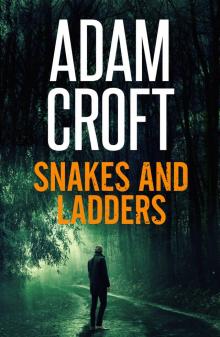 Snakes and Ladders
Snakes and Ladders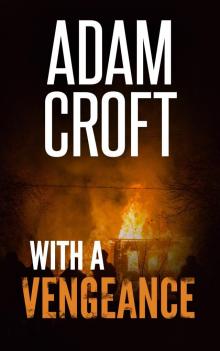 With A Vengeance
With A Vengeance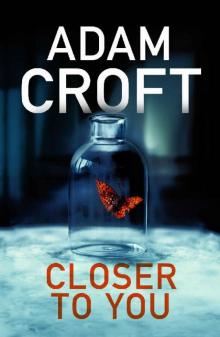 Closer to You
Closer to You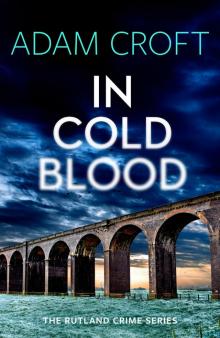 In Cold Blood
In Cold Blood Tell Me I'm Wrong
Tell Me I'm Wrong![[Knight and Culverhouse 09] - In Plain Sight Read online](http://i1.bookreadfree.com/i/03/16/knight_and_culverhouse_09_-_in_plain_sight_preview.jpg) [Knight and Culverhouse 09] - In Plain Sight
[Knight and Culverhouse 09] - In Plain Sight Dead & Buried
Dead & Buried Too Close For Comfort
Too Close For Comfort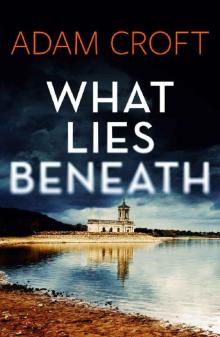 What Lies Beneath (Rutland crime series Book 1)
What Lies Beneath (Rutland crime series Book 1)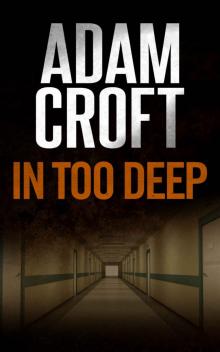 In Too Deep (Knight & Culverhouse Book 5)
In Too Deep (Knight & Culverhouse Book 5) Gone
Gone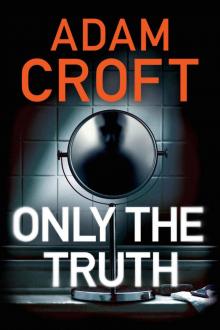 Only the Truth
Only the Truth Kempston Hardwick Mysteries — Box Set, Books 1-3
Kempston Hardwick Mysteries — Box Set, Books 1-3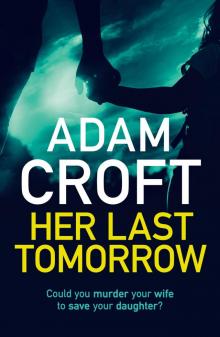 Her Last Tomorrow
Her Last Tomorrow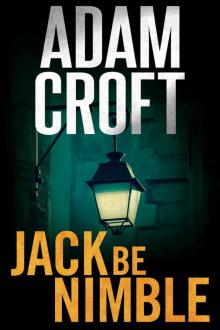 Jack Be Nimble (Knight & Culverhouse Book 3)
Jack Be Nimble (Knight & Culverhouse Book 3) Rough Justice (Knight & Culverhouse Book 4)
Rough Justice (Knight & Culverhouse Book 4)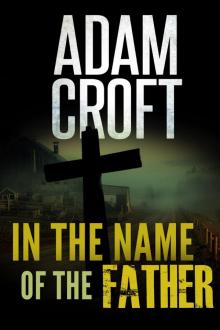 In the Name of the Father
In the Name of the Father In Her Image
In Her Image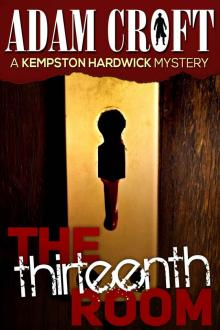 The Thirteenth Room (Kempston Hardwick Mysteries Book 4)
The Thirteenth Room (Kempston Hardwick Mysteries Book 4)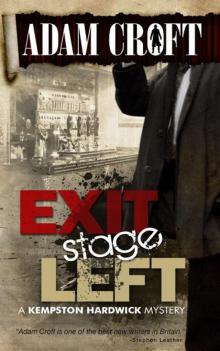 Exit Stage Left (Kempston Hardwick Mysteries Book 1)
Exit Stage Left (Kempston Hardwick Mysteries Book 1)